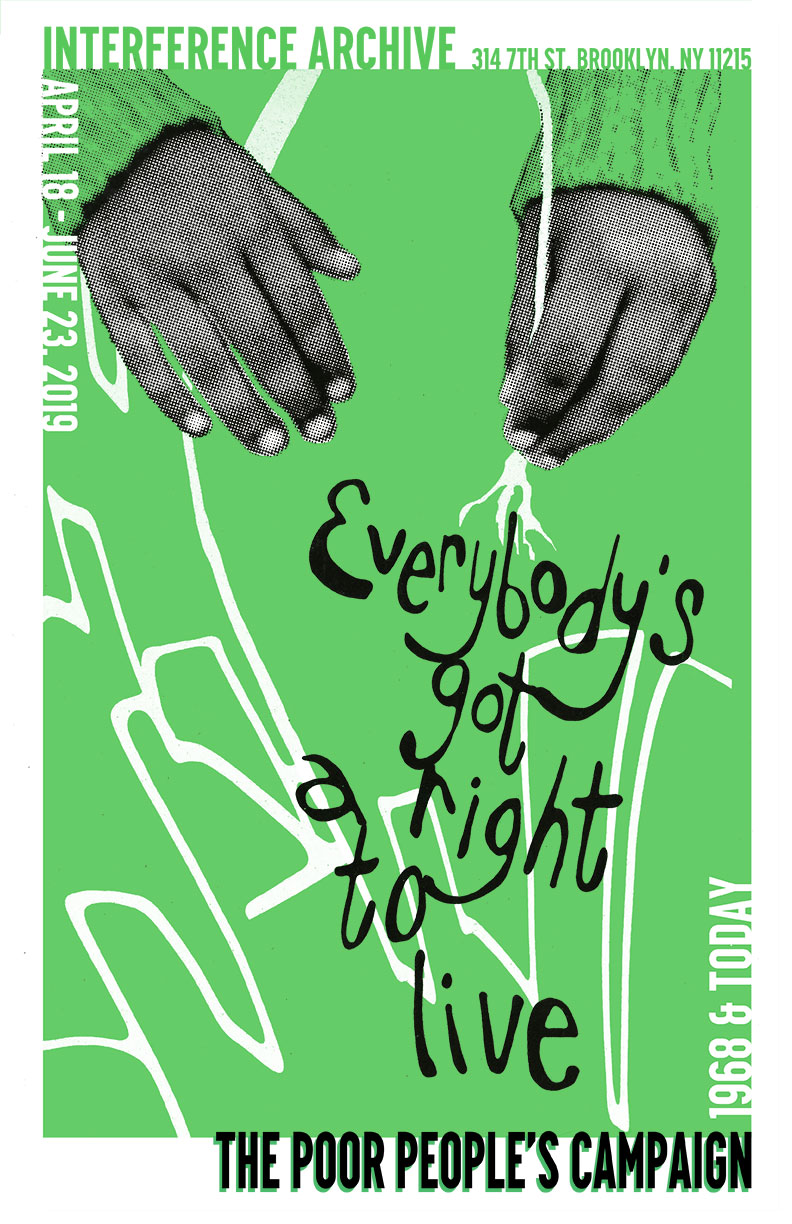April 18 – June 23, 2019
Opening reception: Thursday, April 18, 6-9pm
Described as Martin Luther King Jr.’s “last great dream,” the Poor People’s Campaign of 1968 was an ambitious movement to make poverty in the world’s richest nation visible and to demand justice for poor Americans. King, taking note of how economic disenfranchisement had persisted in the U.S. despite the American civil rights movement’s legal victories, envisioned a “nonviolent army of the poor” marching to Washington to demand good jobs, guaranteed income, and affordable housing. He worked with organizers from the Southern Christian Leadership Conference to foster a movement by and for poor people of all races, shifting his focus from civil rights to identify poverty in the U.S. as fundamentally a human rights issue. Despite considerable challenges and King’s assassination in April 1968, others carried on his efforts, presenting an ‘Economic Bill of Rights’ to Congress that May, and setting up a 3,000 person protest camp on the Washington Mall that was dubbed ‘Resurrection City.’
The Poor People’s Campaign struggled to define itself as a multi-axis movement while it faced political suppression from the state, ultimately derailing its reform goals and leading some to consider it a failure; however, its spirit and intention has carried on into the present day within a growing resurgence campaign seeking to call attention to the unmet demands of ‘68. The Poor People’s Campaign: A National Call for Moral Revival, led by Reverend William Barber II and Reverend Liz Theoharis, now responds to an ever-worsening poverty crisis. At the forefront of the new grassroots campaign’s concerns is the acceleration of economic inequality, but they also seek to address many of the more insidious structural inequalities that arise out of conditions of poverty: new unjust policies like voter suppression laws, mass incarceration rates that further entrench the U.S.’s systemic racism, a growing imbalance in federal discretionary spending on the military relative to social programs, and the intensification of racial and income disparities in access to clean air and water.
This exhibition provides a look at some of the visual culture of the original PPC, including photographs of marches and rallies, press coverage, and a contemporary public response to a mural in Resurrection City called the ‘hunger wall,’ in addition to showcasing the efforts of the new PPC and a portfolio of Justseeds posters created in solidarity with their actions.
